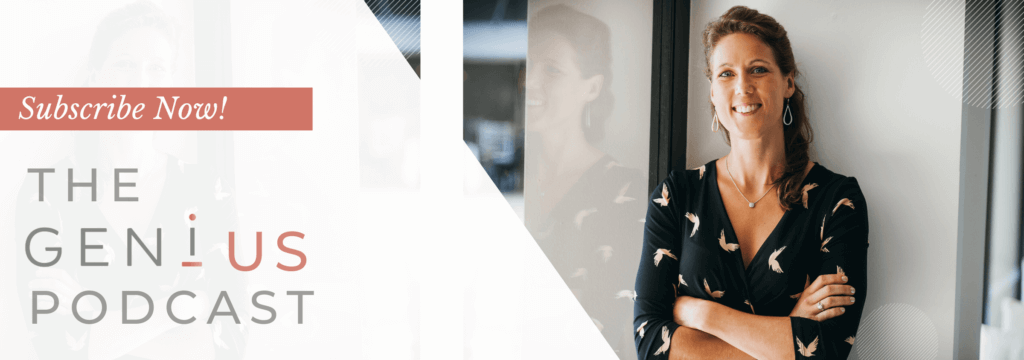Here are Five Lessons I have Learned from Entrepreneur and Spanx Owner, Sara Blakely.
I’ve learned a huge number of lessons from Sara Blakely over the years. She’s a hugely impressive entrepreneur. A curious and extroverted individual. And an incredibly committed and shrewd businesswoman. She’s a bit of an inspiration.
Having worked briefly as a comedian and as a door-to-door fax machine saleswoman, she built her billion-dollar company, Spanx, from the ground up. From the five grand she had in savings when she started, she’s now a billionaire.
But, apart from being a successful businesswoman, she is also an incredibly insightful one too. And here, I want to share some of the lessons from Sara Blakely that I have learned personally. You can find more on all of this in a talk that she gave with the Nordic Business Forum.
Let’s take a look – and I hope you learn something yourself.
1 – The Importance of Thinktime.
One of the things that Blakely makes really clear is about the importance of creativity in our day-to-day business lives.
With the rise of artificial intelligence and automation, creativity will be one of the most important skills that we will have as humans. Computers will never be able to do this – making the value of creativity skyrocket.
Yet, one of Blakely’s points is that you cannot be creative unless you have time to be creative. And we must know that when we are stressed, our creative functions diminish dramatically.
What she suggests is to carve out space – something like I call protected time – to think about new ideas. To work over problems and challenges creatively. To get space away from the everyday running of a business to mull over potential products – or anything else besides.
Her specific strategy is quite extreme. Living only ten minutes from her office, she makes sure that her drive in takes at least an hour. Blakely reckons that she has the best ideas in the car – and so does her best to make sure that she has as much time in the car as possible.
You know my preference for walking over the car. Yet, the point is that you can’t be creative without allowing yourself the space. So take a ‘fake commute’, or just get out and go for a walk, but make sure that you allow yourself the time to get creative.
2 – Don’t be Stopped by a Fear of Failure.
One of my favourite lessons from Sara Blakely has been her drive – and her ability to work past her fear of failure (if she has it at all!).
When building Spanx, she had no knowledge of manufacturing and no knowledge of the clothing industry. In fact, it seems that she had no real knowledge of what it would take to build a clothing company to begin with!
However, with a real determination and a willingness to commit herself to finding out everything she needed to know, she put the company on a trajectory of growth.
What she lacked in initial knowledge, she made up for in a clear vision of the problem, the customers pain points that she wanted to solve – and a daring ability to accept constructive criticism. If a product wasn’t right, she’d hear the feedback and keep making the relevant changes.
One of her important lines is ‘ask for forgiveness, not permission’. Businesspeople tend to get a little stuck in the ideas phase of their business – and struggle to move to action, to get the product out.
But as Blakely acknowledges, if she’d never acted, she’d have never made the improvements that her customers suggested. Every so-called failure would become a ground for a future improvement. The obstacle would become the way.
3 – Record Your Ideas – and That Means All of Them.
Blakely has always been someone to come up with loads of ideas. She has always been a hugely prolific ideas-person. However, one of the most important lessons from Sara Blakely I’ve learned is the importance of recording those ideas.
This is crucial. Imagine a problem that you solve in your business. But you don’t record what you did and what led up to the problem. There’s no chance of you being able to prevent it happening again.
Having records of everything is so important. With one of my clients, we’ve been studying the queries that have been coming out of one particular department. We’ve been writing all of these down and are providing written guidance in the form of a handbook.
If you record the solutions to the problems that you face, you won’t have to spend time considering them again in the future. And your staff will know what to be doing too.
Recording your ideas is an imperative that should apply to all fields. We’re talking about ‘moments of inspiration’ – ideas for new products, improvements, solutions and processes. Ideas for ways to reduce complaints and to improve productivity. And ideas from any inspiration around you – competitor’s ideas, other industries or even random thoughts.
Write it all down!
4 – Keep Asking that Question, ‘Why?’
I’ve talked about the Five Whys in the past – a particular strategy to get to the deepest level of problems. But, Blakely – as I said, an incredibly curious individual – applies this process to everything.
She tells a story of how she once went into her manufacturers and saw them sewing an elasticated waistband onto her product. She asked them why they were doing it. To the response, ‘that’s how we’ve always done it’, she asked them why. And to this, they had no answer.
Asking challenges people’s assumptions – and gets them, and you, to question the foundations of your own habits and behaviours. And it’s all about getting down to the most fundamental reasons for things.
As Einstein once said, ‘If I had an hour to solve a problem, I’d spend fifty-five minutes identifying the problem, then 5 mins solving it’. This is what should all be like ourselves.
5 – Be Yourself
Finally one of my biggest take aways, be yourself. If you have ever watched any interviews or follow Sara on Instagram, she is always herself. Her business was born from a desire to solve a problem she experienced herself. And she strives to continue to solve these problems for her customers.
You hear of people all the time trying to come up with a business idea, something disconnected from who they are. She knew her customer and talked about the issue. And she has worked hard to create the best product to solve that problem.
At work, she is herself – and she has built a billion-dollar company with a culture that reflects her personality and motivation to help her customers. She isn’t trying to be anyone else or emulate the ‘qualities’ of what some view as a business person.
This also raises a second point: she takes care of herself so she can be at her best – personally, professionally and creatively. Which in today’s burnout plagued world is quite refreshing to hear!
Definitely someone to learn from and ‘take a few pages from her book’.
Check out my articles on Lessons from Richard Branson and Learning from Yvon Chouinard.





